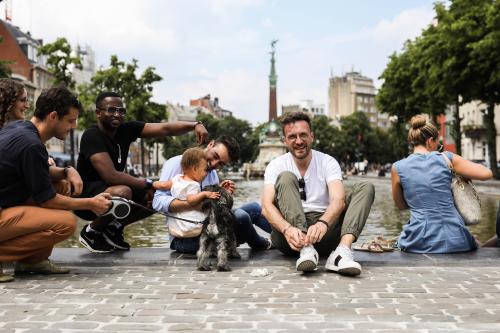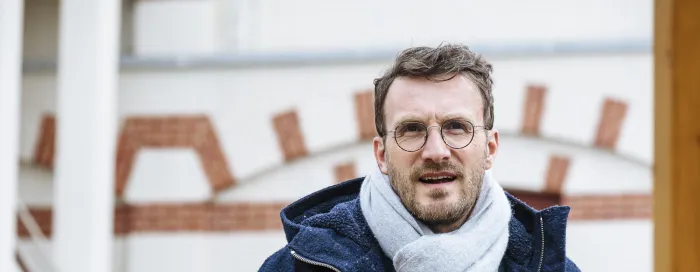This interview is part of our series “#ProgressiveLocalStories”, aiming at raising awareness on the many positive initiatives implemented by progressive cities and regions in Europe in relation to the Sustainable Development Goals. Cities and regions have become laboratories for innovative solutions and, with this series, we want to discover how progressive mayors, councillors and presidents of regions put in place policies to build more sustainable and inclusive communities.
To what extent is your region confronted with the demand for EU and international citizens to obtain voting rights?
Brussels is not only the capital of the EU, it is also the capital of Europe, with which I mean we are a truly international city with all European nationalities being present, and far beyond. In fact, we are the world’s second most cosmopolitan city, just after Dubai, with over 183 nationalities.
We have a population of around 1.2 million people. More than 430.000 of them do not have Belgian nationality. To give you an idea, in Belgium, on average only one person out of ten does not have Belgian nationality, but in Brussels this amounts to more than one out of three people. How could anyone continue to defend this degree of injustice? I really think it confronts Brussels with a crucial question of democratic representation.
Those who have resided on Belgian territory for more than five years can take part in the municipal elections. However, the registration procedures are cumbersome and even Kafkian at times. But in the end, this municipal voting right is also inherently insufficient: the lives of the inhabitants of Brussels are first and foremost determined at regional level, not on the municipal level.
Do you think it needs to be changed? Why do these people also deserve the same rights even though they might leave any time soon, and some of them don’t even pay taxes?
Of course this needs to change! They are also Brussels citizens who live, work, or study here and pay their taxes. The often-heard idea that these people “don’t pay taxes” and therefore should not be given the right to vote is a cliché and simply incorrect. Of the abovementioned 430.000 international Brusselers, EU civil servants only amount to 8 per cent of the non-Belgian Brusselers. Can we also talk about the other 92 per cent please?
And while they don’t pay income taxes to the Belgian state, EU civil servants still pay taxes directly to the EU budget, of which Belgium is a net beneficiary, not in the least because of the presence of the institutions in Brussels. I ordered a study last year together with Minister-President Rudi Vervoort to measure the impact of the international presence in Brussels. The results are absolutely stunning. The international institutions and their workforce generate almost 20% of the Brussels regional economy and represent up to 23% of employment in Brussels. In terms of prosperity, their impact is estimated at 13.9 billion euro in turnover for the Brussels region.
You will immediately understand how important I think it is that we should prioritise the revitalization of the European quarter after covid, and why I think we should really cherish the presence of the international community in Brussels. The times of self-complacency are over, it is about time we again invest in the international presence in Brussels, including by extending what is most valuable for citizens: political rights.
How do you want to get there?
During the last election campaign we had several bottom-up citizen initiatives like “I vote where I live”, soon to be followed by 1Bru1Vote, which both were very successful to put the issue on the political agenda. They got my full support. We also heavily fought – and are still fighting – on the federal level to get the regional voting rights for non-Belgians included in the package of institutional state reforms. Also on the regional level of Brussels, the government will organise its so-called “State General of Institutional Reform” where I will also put our vision and our demands on the agenda.
On the European level, the issue is very much alive as well, with the European Citizen’s Initiative “Voters Without Borders”, which should deserve our strongest support. In the end I believe an EU wide recognition of EU citizenship including full political rights for all EU citizens in every EU member state is the only logical and real solution we should strive for.
I believe we can only get there step by step, and by continuing to push for it on the local level, everywhere in Europe. For example, in absence of the regional voting right, I try to do as much as possible within the competences that I currently possess. Together with the Brussels Commissioner for Europe and the International Organisations, we just launched a pioneering project called “Live here. Speak, hear.” which will offer international residents a chance to share their ideas and be heard at regional level, combining an online platform with interactive debates to find out what international Brusselers really want. With the project, we want to gather their suggestions about how our government could make life easier for the international community in Brussels. We will invite them to propose and debate ideas, make policy proposals, and select their top priorities. Based on that, a Manifesto of the International Brusseler will be published, which will contain a comprehensive set of policy recommendations which we will present to the Brussels Parliament in November.
Nothing can replace the real deal: the right to vote. But I do believe in this way we can amplify the voice of the international community as much as possible, as long as we are not there yet.

***
Photo credits: Prezly / Pascal Smet
